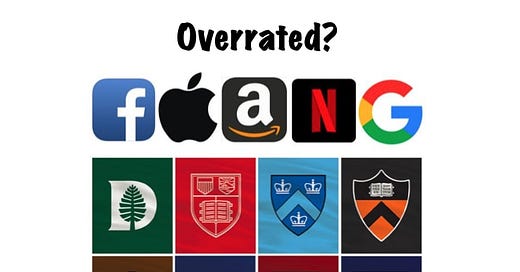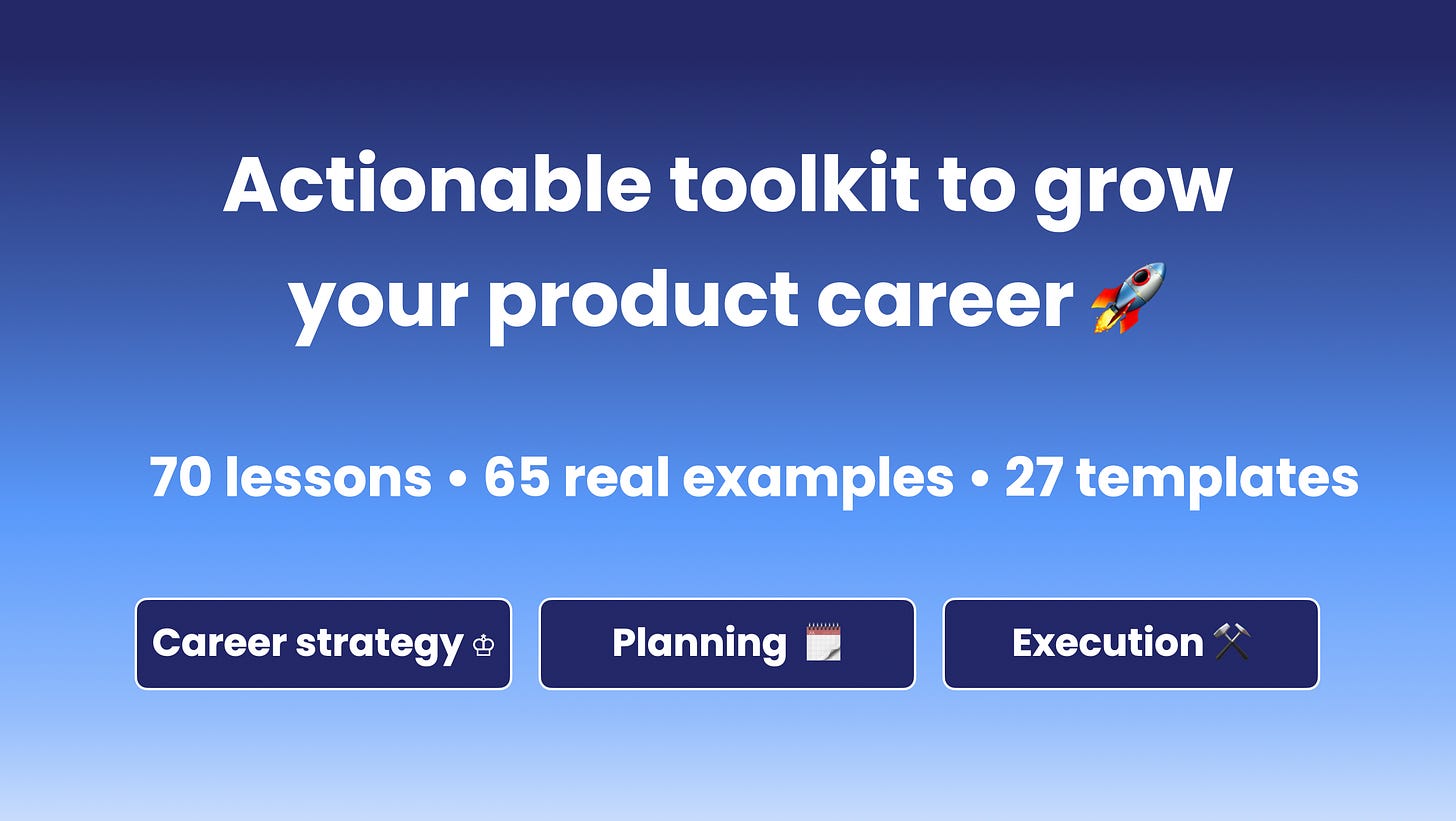I used to be obsessed with getting the right credentials. I performed tirelessly for admissions officers, recruiters and all kinds of gatekeepers. Over the years, I’ve come to the clarifying conclusion that none of it matters.
Your market and customers don’t care where you went to school, or even where you worked before. An Ivy League degree or a FAANG title is like a wind that gives you an early push. But your ability to create experiences and solve the right problems is the enduring current that predicts where you end up.
Let’s unpack what this means, when it applies, and what to do about it.
Paper credentials vs. real reputation
I graduated magna cum laude from Harvard. But what you don’t see are the choices I made to get there.
In college, I made it my mission to get good grades to secure a prestigious job. So I took the easiest path I could find.
Instead of majoring in Molecular Cellular Biology, I chose Human Evolutionary Biology — fewer advanced science requirements. Instead of taking Intro to Computer Science, I chose its watered-down sibling: Great Ideas in Computer Science where we coded in Scratch. 😳 I also cut out any hobbies that could distract me from the GPA and interview prep race.
When I landed a coveted consulting job, I felt supremely validated. But once I started working, I realized:
You can fake competence in interviews, but harder to continuously fake competence on the job every single day
Your paper credentials is quickly replaced by your real reputation: what you can actually do, especially what you’ve done recently
Underneath my paper credentials, I was an empty suit. I spent 4 years gaming the GPA system instead of learning how to be useful. The great irony is that I’ve since had to learn data analysis and coding — not doing the real thing was mere procrastination.
Fancy procrastination
Why obsess over GPA and interview prep? If you’re anything like me, it’s to signal you are worthy. To prove that you’re going places. In other words, fancy procrastination: being so caught up in preparing that you forget to do the real thing.
The internet, however, has launched a subtle and underappreciated change: most things are now permissionless. If you want something, create a body of work that proves you can do it.
Try out that product, interview customers, and come up with ideas to make it better. Start mentoring others to show your leadership potential. Instead of asking permission for experience, create your own:
Old school mindset: wait to be given a job, and then get great.
New age mindset: do things that make you great to attract more options.
The old school mindset requires you to be chosen by gatekeepers. It’s slow, passive and makes you more risk-averse. While it feels nice to be validated by the powers that be, you constantly live under rules you don’t control.
The new age mindset takes matters into your own hands. You might still catch the attention of gatekeepers, but your focus is on doing more reps and practicing your craft to become undeniably great.
Reverse-engineer the best
How do you know if the new age mindset will work for you? One test is observing the best practitioners in your space. Did they start with fancy credentials?
In the case of product management, entrepreneurship and most things in tech, the answer is resoundingly clear. The best degree is to start doing.
The world is your school. The market is your test. The graders are your customers.
Sometimes internal politics trumps helping customers, in which case it’s worth asking…
Who are you performing for?
Early on, many of us perform for admissions officers and recruiters. Then we move onto performing for our managers, promotion committees, investors.
The problem with performing is that your self-worth gets tied up in the arbitrary judgment of your audience. The smaller your audience, the more arbitrary it can be.
Your audience has immense control over what you focus on, and how you feel about yourself. So it’s worth asking:
Who are you performing for?
Do you like who you’re performing for?
I find that a lot of stress is rooted in performing for people whose judgments feel arbitrary and fickle. The healthy alternative is to perform for yourself and let go of what you can’t control. In reality, it’s hard to ignore what people think.
Perhaps a more pragmatic alternative is to perform for customers. Focus on helping people solve their problems. Learn skills that directly make a difference (asking questions, diagnosing problems, building solutions). It’s usually more gratifying, and there are far more customers than gatekeepers in the world!
More importantly, performing for customers leads you down one of two paths:
You end up earning the respect of gatekeepers by growing their business
You no longer need to seek approval from gatekeepers because you’re valuable in your own right
So if you have fancy credentials, it’s a fortuitous start, but it’s only that — a start. And if you don’t have fancy credentials, know that it will not stop you from becoming the real deal.
Achieving greatness in school requires mastering old ways of thinking. Achieving greatness in life demands new ways of thinking, including questioning the premise altogether.
Question of the week:
You wake up and it’s suddenly 6 months from now. What will you regret not having done? Now go do the thing and make your future self proud 😊
Here’s mine: I will regret not becoming self-sufficient in building web apps, constraining what I can work on. So I’ll be focused on building and shipping at least 2 projects between now and then.
Like what you read? Get every lesson in your inbox. Includes a welcome gift! 🎁
For more no-BS lessons, I made an actionable toolkit to grow your product career. Learn from real examples and templates.
Thanks for reading,






